The Bible with Nicky and Pippa Gumbel, Classic Version, 2017Sample
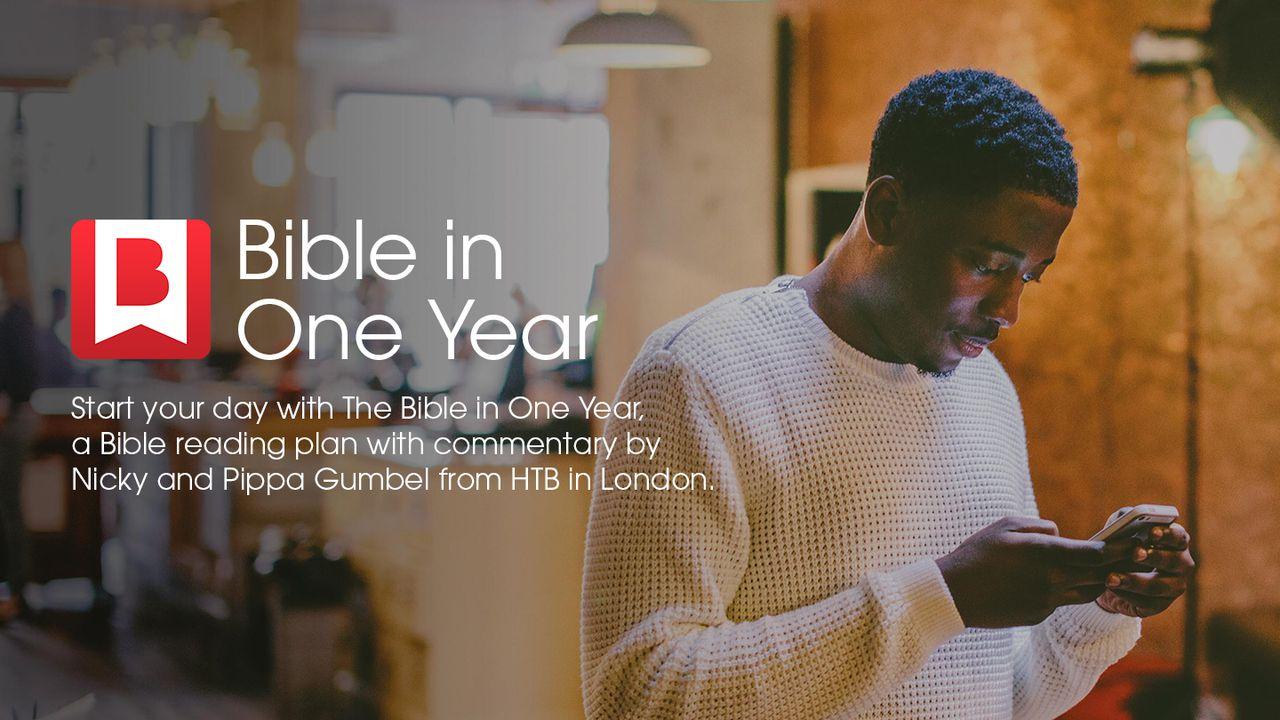
The God of the Second Chance
‘Second Life’ describes itself as a place ‘to connect, to shop, to work, to love, to explore, to be different, to be yourself, to free yourself, to change yourself, to change your mind, change your look, to love your look, to love your life’.
‘Second Life’ is a virtual world. Over twenty million people have created a Second Life character, through which they can live in this new world. They are looking for another chance in life.
This virtual world is clear evidence of the longing of so many for a fresh start. Yet, in reality, God is the God of the second chance and third chance, and fourth, and fifth, sixth and many, many more. He gives us countless chances to turn back to him and enjoy his love again. God doesn’t just give us a ‘second life’ – he comes to us and transforms our real life.
Psalm 85:1-7
1. Make a fresh start
Like so many of us, the psalmist wants an opportunity to make a fresh start in life. He cries out to God, ‘help us make a fresh start’ (v.6, MSG).
God is not wishy-washy. He hates sin. There is such a thing as righteous anger (v.5). It is one side of God’s love. But the psalmist knows that this righteous anger is not contrary to God’s unfailing love, and in this psalm we see both side by side.
God forgives: ‘You lifted the cloud of guilt from your people, you put their sins far out of sight… you cooled your hot, righteous anger’ (vv.2–3, MSG).
When you turn back to God he restores and revives you through his ‘unfailing love’ (v.7). The psalmist prays, ‘Restore us again… Will you not revive us again’ (vv.4,6).
Lord, thank you that you give me so many chances. Restore and revive me again, that I may rejoice in you.
Romans 2:1-16
2. Enjoy a radical life change
God loves you. He wants the very best for your life. He does not want you to mess up your life. Sin takes us ‘on a dark spiral downwards’ (v.1, MSG). ‘God is kind, but he’s not soft. In kindness he takes us firmly by the hand and leads us into a radical life-change’ (v.4, MSG).
Paul speaks of the ‘wrath’ of God (vv.5,8). This is God’s loving, righteous anger against sin. But Paul does not begin with the ‘wrath’ of God. He begins with ‘the riches of his kindness, tolerance and patience’ (v.4). God is love. His anger is the very last resort – for those who are ‘self-seeking and who reject the truth and follow evil’ (v.8).
God loves everyone. He ‘does not show favouritism’ (v.11). He loves both Jew and Gentile alike. God is impartial. He is a righteous judge.
All of us have sinned and have no excuse: ‘Every time you criticise someone, you condemn yourself. It takes one to know one. Judgmental criticism of others is a well-known way of escaping detection in your own crimes and misdemeanours’ (v.1, MSG).
It is so easy to judge other people about the very things we do ourselves. We tend to look at ourselves through rose-tinted glasses and look at everyone else through a magnifying glass. A judgmental mind focuses on what is wrong with others, rather than on what is right.
The opening five books of the Old Testament establish God’s relationship with his people and give instructions on how to live. But ‘merely hearing God’s law is a waste of your time if you don’t do what he commands’ (v.13, MSG). So all of us will be judged by what we know. For some, that will be God’s law, for others their own consciences: ‘Something deep within them that echoes God’s yes and no, right and wrong’ (v.15, MSG).
All of us need to repent. God’s kindness is intended to lead us to repentance. The moment you repent and turn to God, you get another chance, the possibility of a new life. Repentance is not just about turning away from sin, but turning towards God.
Lord, forgive me for the times when I judge others. Thank you that every day is an opportunity for a new start, another chance.
Jonah 1:1-4:11
3. Seize a second chance
Jonah is different from all the other prophets. As Eugene Peterson writes, ‘He is not a hero too high and mighty for us to identify with – he doesn’t do anything great.’
The book starts with Jonah disobeying God, and ends with him complaining about what God has done. He is a man who suffered from severe depression. God works within and around Jonah’s weaknesses to accomplish his purposes.
Each of these four short chapters tells us something about God’s love:
- God’s love will never let you go (Chapter 1)
You cannot successfully run away from God or from his call. Jonah was a well-known preacher (2 Kings 14:25). He is told to go to Nineveh (Jonah 1:2). Instead, he runs to Tarshish – to the Costa Brava in southwest Spain (and not for a holiday!).
You can run from God, but you cannot hide. Jonah ends up in a mess. It is so easy to think that our own disobedience will not affect anyone but us. This story shows that our disobedience has consequences for other people.
Sometimes the storms we face in life are the result of our own disobedience. A storm rages, and Jonah knows it is his fault. He is prepared to die and demands to be thrown into the sea, but ‘the Lord provided a great fish’ (v.17). God’s love would not let him go. - God’s love can reach you no matter how far you’ve fallen (Chapter 2)
No matter how desperate or hopeless your situation may seem, it is never too late. When he hit rock bottom, from inside the fish Jonah prayed: ‘In my distress I called to the Lord… you listened to my cry’ (2:2).
He recognised what we miss out on when we do not follow the Lord. ‘Those who cling to worthless idols forfeit the grace that could be theirs’ (v.8). It is so easy to put our trust in something other than God. We can so often put our trust in the 'idols’ of money, success, fame or sex. Anything that takes you away from God prevents you from receiving the grace that can be yours.
There is no situation that God cannot rescue you from if you cry out to him. - God’s love means you get another chance (Chapter 3)
God was persistent in giving Jonah a second chance and when Jonah took him up on it, the result was an eternal impact on many people’s lives.
Then the word of the Lord came to Jonah a second time: ‘Go to the great city of Nineveh and proclaim to it the message I give you’ (3:2). The first time he messed up; the second time God used him powerfully.
Not only did God give Jonah a second chance, he also gave the city of Nineveh a second chance.
Nineveh was a great city (1:2; 3:2). It had more than 120,000 people (4:11). As a result of Jonah’s message the people repented; they believed (3:5). The king believed (vv.7–9). Revival came as a result of one person’s preaching. Thousands were saved (v.10). - God’s love extends to all his creation (Chapter 4)
God loves everyone and wants to be merciful to every person, city and nation on earth.
After all the success of his evangelistic campaign, Jonah fell into another deep depression. He was angry with God (4:1). Jonah was quick to anger, unlike God who is ‘sheer grace and mercy, not easily angered, rich in love, and ready at the drop of a hat to turn your plans of punishment into a program of forgiveness!’ (v.2, MSG).
We see now why Jonah ran away in the first place. He was angry that they had repented. The Ninevites were cruel oppressors. They were into witchcraft, torture, greed and prostitution. Yet they repented and God forgave them. Still, today, some find it hard when really evil people repent and God forgives them.
God sent Jonah a visual aid. He provided a plant to give him shade. He was thrilled with it. Then God destroyed it (v.7). But God pointed out his great love for all his creation (unlike Jonah’s concerns, which are rather narrow and selfish, vv.10–11).
One of God’s amazing characteristics is mercy. Mercy means being kind and good to people who do not deserve it. God has extended his mercy to you and me through Jesus Christ and his mercy never runs out.
Lord, thank you for your great love. Thank you that even when I have messed up, you give me another chance. Help me to bring the good news of your love to others so that they too may turn back to your love.
Pippa Adds
Jonah 1:1–4:11
Jonah worried more about looking good than saving the lives of thousands of people.
About this Plan

Start your day with the Bible in One Year, a Bible reading app with commentary by Nicky and Pippa Gumbel. Nicky Gumbel is the Vicar of HTB in London and pioneer of Alpha. 'My favourite way to start the day.' - Bear Grylls, Adventurer
More
We would like to thank Nicky and Pippa Gumbel, HTB for providing this plan. For more information, please visit: https://www.bibleinoneyear.org/
Related Plans
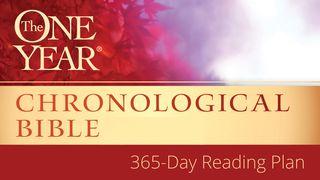
The One Year® Chronological Bible
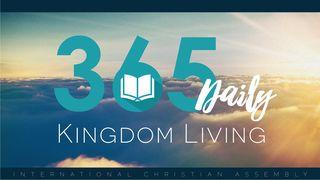
ICA - 365 Daily Kingdom Living

The Greatest Gift
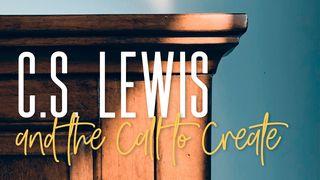
C.S. Lewis And The Call To Create
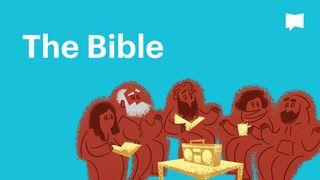
BibleProject | The Bible

Choosing Each Day: God or Self?
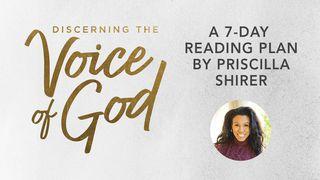
Discerning The Voice Of God
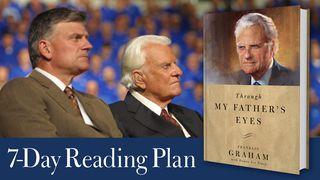
Through My Father's Eyes
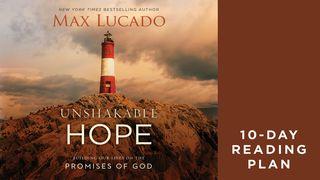
Unshakable Hope: Building Our Lives On The Promises Of God
